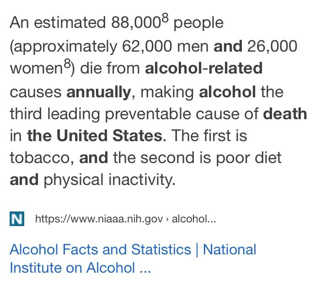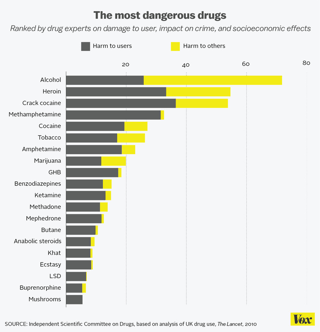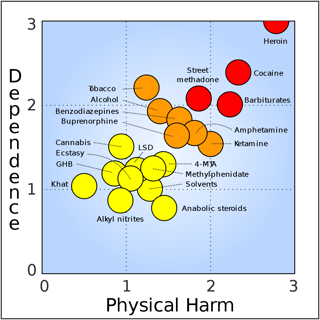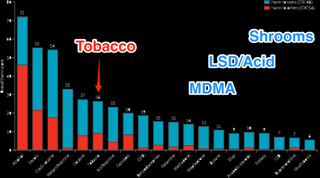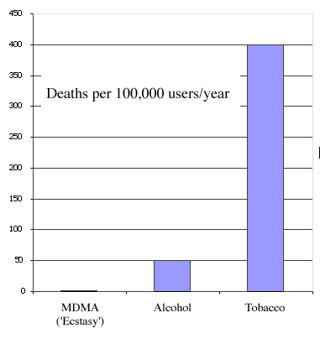It says 88000 people die from Alcohol related causes
What I want to know is the number of people that die compared to the number of alcohol users.
Then I want to compare that with the same ratio for
- Alcohol
- Cigarettes
- LSD
- MDMA
- Meth
- Heroin
- Cocaine
- Crack Cocaine How many death per users per year?
Is death per user increase or decrease in places where those are legal/criminalized?
How do I get that data? Anyone studying this?
It's a simple statistic.
If I did some research I often see graphs like this
The graphs are too subjective. One is made by lancet I think. I forget the rest. I will find some sources. However, I am just pointing out that the graphs are too subjective.
The lancet source is this https://en.wikipedia.org/wiki/Substance_abuse
However, this may not convince many skeptics.
The graphs simply say MDMA is less dangerous than alcohol. Danger is subjectively defined.
So I tried something objective.
How many people that use MDMA will die due to MDMA.
I will also take into account that MDMA are less addictive. So yes. We will be comparing those who use MDMA like once every 2 months with heavy smokers. It's still a fair comparison because cigarettes are addictives and MDMA isn't.
I wonder if such research have been done?
Another thing I want to examine will be dangerous that doesn't lead to death. Things like permanent IQ decrease, for example. However, this question ask about something whose meaning is obvious. Death.
Another useful stats is usage vs https://en.wikipedia.org/wiki/Years_of_potential_life_lost
I wonder if there is any research on that.
This one says that there are 600 death due to MDMA usage https://drugwarfacts.org/node/3484
However, it doesn't tell how many people use MDMA in US. So I can't compute the ratio and compare the ration with cigarettes.
Sample of good answer will be something like this:
The death rate for MDMA, assuming that there really were about 60 deaths directly caused by MDMA in 2000, would be roughly 2 in 100,000 users. The death rate from smoking, by contrast, is on the order of 400 per 100,000 users. Even alcohol, America’s official “it’s not really a drug” drug, nets about 50 deaths per 100,000 users each year:3
I just want more complete pictures for more popular drugs.
I repeat that again
- Alcohol
- Cigarettes
- LSD
- MDMA
- Meth
- Heroin
- Cocaine
- Crack Cocaine
So we already got 3. Alcohol, Cigarettes, and MDMA. I want more numbers to around those 8 I think?
If it's too broad, then I just want MDMA, Meth, Heroin, Cocaine, and LSD, and Weed.
Partial answer is good enough. So if you know the ratio for weed, then that's good enough. The best answer will be the one that show more.
